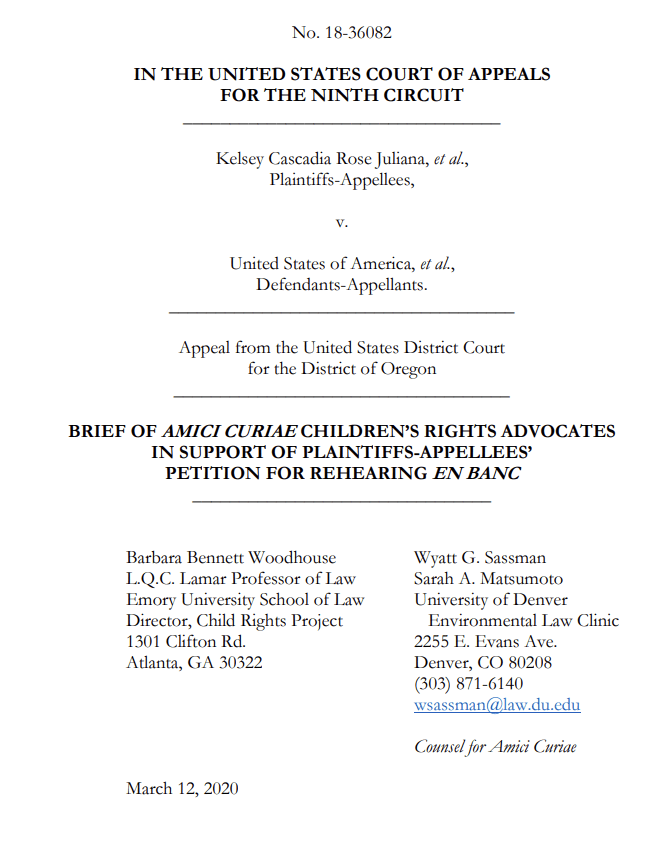
Summary of Argument
The panel erred in determining that no legal remedy is available to the youth in this case. The majority directed the children to the political process to bring climate grievances; however, children lack political power and therefore have no recourse there. Precedent recognizes a special judicial role in protecting children where children are explicitly excluded from influencing policies detrimental to them. The panel’s conclusion that there is no remedy available to these innocent children overlooked this precedent. Children are uniquely and disproportionately harmed by climate change. The government’s system of subsidies and programs promoting fossil fuel use causes climate change, yet children are unable to influence these harmful government policies. Historically, the Supreme Court has stepped in to protect vulnerable groups marginalized from the political process, including children punished because of circumstances beyond their control. This precedent demonstrates this Court’s obligation to step in to protect children from the detrimental harms of climate change. The Court’s role in protecting these children is even more vital because neither children nor our planet can withstand the irreversible damage that will arise from more decades of delay.